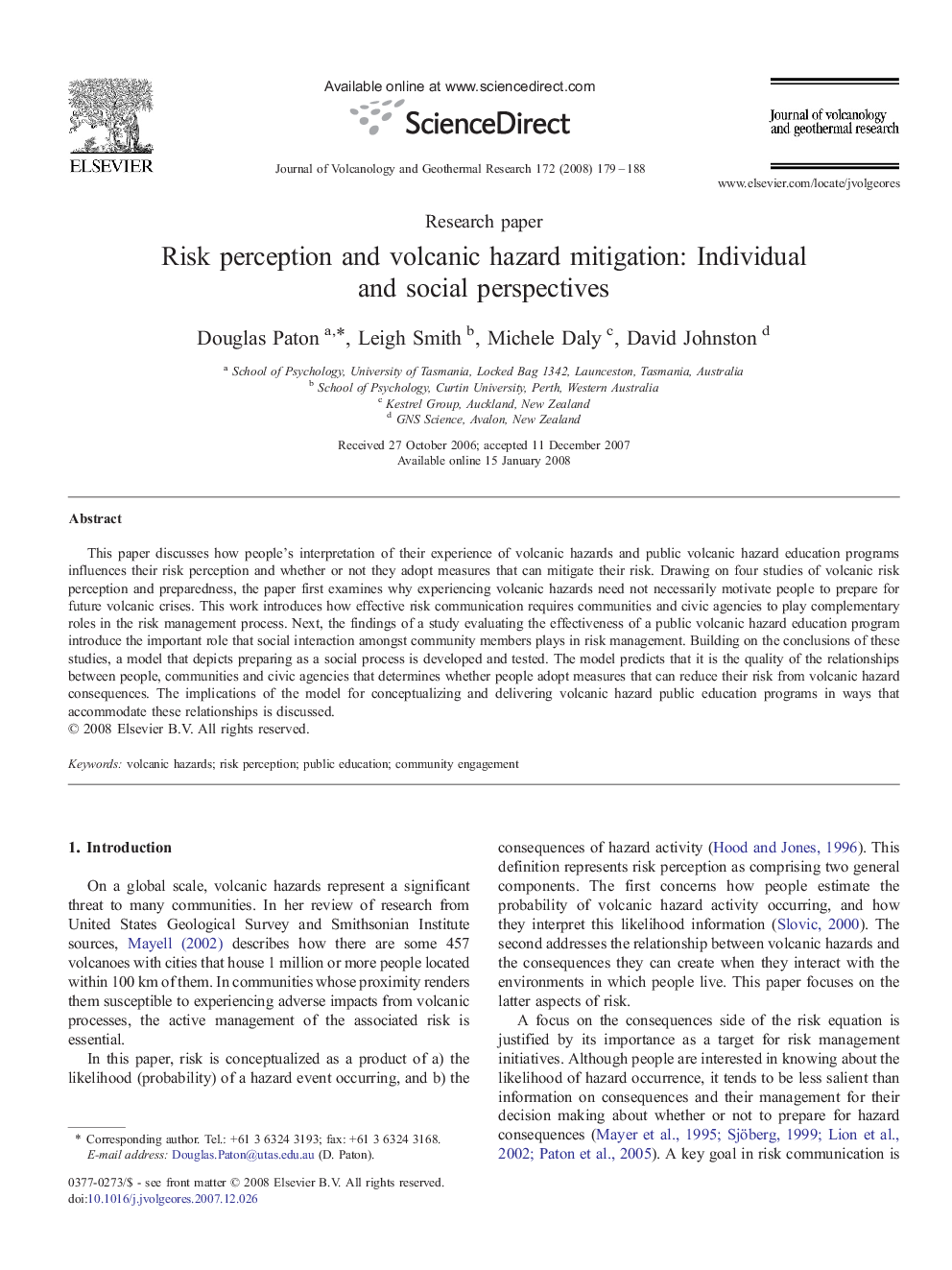| Article ID | Journal | Published Year | Pages | File Type |
|---|---|---|---|---|
| 4714545 | Journal of Volcanology and Geothermal Research | 2008 | 10 Pages |
This paper discusses how people's interpretation of their experience of volcanic hazards and public volcanic hazard education programs influences their risk perception and whether or not they adopt measures that can mitigate their risk. Drawing on four studies of volcanic risk perception and preparedness, the paper first examines why experiencing volcanic hazards need not necessarily motivate people to prepare for future volcanic crises. This work introduces how effective risk communication requires communities and civic agencies to play complementary roles in the risk management process. Next, the findings of a study evaluating the effectiveness of a public volcanic hazard education program introduce the important role that social interaction amongst community members plays in risk management. Building on the conclusions of these studies, a model that depicts preparing as a social process is developed and tested. The model predicts that it is the quality of the relationships between people, communities and civic agencies that determines whether people adopt measures that can reduce their risk from volcanic hazard consequences. The implications of the model for conceptualizing and delivering volcanic hazard public education programs in ways that accommodate these relationships is discussed.
